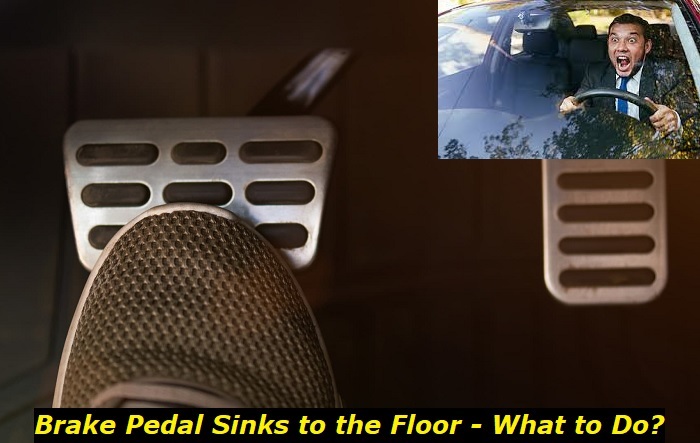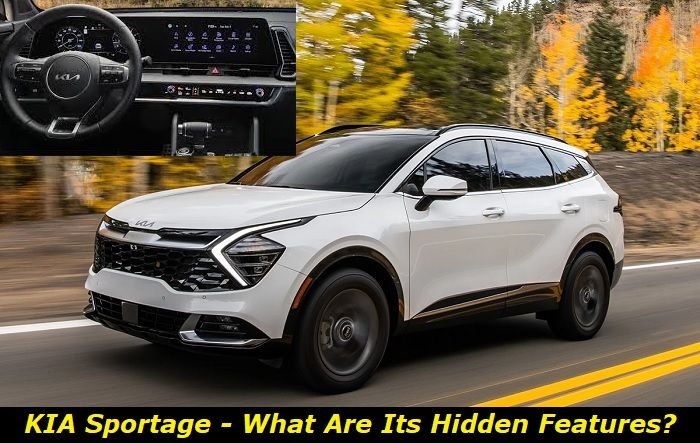Having a good vehicle is no more a privilege for a person - it's just a necessity to live a normal life. At least if you live in a private house and need to get to work driving 30-50 miles one way every single day, it's hard to imagine your life without a personal vehicle. But vehicles are not as safe as they are thought to be. Every year, 46,000 people die in car accidents in the USA, on average, according to the Annual United States Road Crash Statistics reports.
Brake fluid problems highlights
- Level of urgency:super-urgent
- DIY diagnostics:usually,impossible
- DIY repairs:impossible
- Price for repair:$250 - $650
- Common symptoms:pedal goes to the floor, braking efficiency low, leaks
- Commonreasons:brake lines leaking, low fluid,badfluid
- If ignored:no brakes, getting into accidents, poor safety when driving

Why can your brake pedal suddenly sink to the floor?
That's a complete disaster when you see your brake pedal sinking to the floor. So what could be the reason for this? A lot of problems with your vehicle can have caused this. And knowing these problems won't help you right in the situation but it will probably help you prevent this from happening in the first place.
So, first of all, we want to discuss what could cause the problem. First of all, you should remember whether you had your brakes repaired or maintained recently. Maybe, the dealership changed the brake fluid or just pumped the brakes for some reason. Maybe, the brake shoes were replaced just a couple of days ago. In most cases, this will answer your question.
Here are the most common problems that can lead to the brake pedal sinking:
- low brake fluid level - this won't happen suddenly, the pedal will gradually become softer and eventually sink;
- the quick loss of brake fluid - brake fluid is delivered to the brakes via metal and rubber pipes that can be damaged by road debris or because of other reasons;
- one of the brake cylinders is dead - this won't cause a complete loss of brake power because there are always two separate systems in cars to avoid accidents, but the pedal will become much softer;
- someone did this on purpose - someone could cut the brake pipes in your vehicle because they wanted to take revenge or are just mad;
- the master cylinder is broken - it may have been destroyed by corrosion or any other factors that made it impossible for the cylinder to work;
- the pedal fails - one more unit that could be the reason for the problem is the pedal itself, it could get rusty, something could have fallen apart;
- the ABS unit malfunctions - the ABS system also uses brake fluid and once it's broken, the pedal may sink to the floor, too.
So, you have a lot of reasons that can cause this problem. It means you can actually find the reasons by yourself. But, in most cases, you will still need some professional help to repair the vehicle. So, the best solution after you safely get out of the situation is to take your car in for diagnosis and repair.
Of course, it's impossible to keep driving your vehicle after this happened. Even if you feel that the brake pedal is again working well, you shouldn't continue driving. It's taboo now until you have your vehicle checked thoroughly and repaired. If this happens again, you may get into a dreadful road accident and be injured or even die.
Can you safely brake if your brake pedal sinks?
If you ever experience this problem, you may start panicking. We get used to the feeling of tension in the brake pedal. And we get used to a certain pressure to get a certain brake effect. Even when we drive a new car that we haven't gotten used to yet, we may experience this one-second panic because brakes work differently. But what if they don't work at all?
The first thing you need to do is to stop panicking because this is going to cause a road accident even if the conditions are pretty safe. For example, if you are on the highway, you may very safely stop your vehicle without even applying brakes - you just need to know what to do. But if you are panicking, you may hit the road fence or some other car.
So, here's what you should do if this happens on the highway:
- Press the brake pedal once more to make sure it still doesn't work.
- Safely go to the right side of the road and turn on the emergency flashers.
- Take the foot off the gas pedal, so that the vehicle starts slowing down.
- Watch the road conditions and just steer safely until the speed is low.
When your car drives at 5 mph or something, you just turn off the engine or set your shifter to the P position.
Now, your vehicle is safely stopped on the right side of the road.
If you have a manual-transmission car, you can help the vehicle to slow down even better. Just use lower gears to make the engine rev up and don't touch the gas pedal. This way, you can go down to the first gear and eventually stop your vehicle much faster and safer.
But this may not work that well in the city where the traffic is much more intense and you may have a traffic light in your way. So, here things may be much worse, but let's try to see how you can minimize the problems.
Here's what you may try doing in the city when your brake pedal sinks:
- Try pressing the brakes intensively a couple of times - this may help and you can stop the vehicle eventually.
- If this doesn't help, forget about brakes and try choosing the safe way to let your car stop. For example, you may try to get it to the hill (up the hill, not down please) where it won't go that fast.
- Use the parking brake unless it's electronic in your car. Let your shifter be in D or N and start very gently take the parking brake lever up. Be careful - you may provoke an accident if you do that too fast.
- Choose a safe place to try and stop your vehicle by putting the shifter to P if it's not going too fast (up to 15 mph).
- If the situation is too bad and you see that you are approaching the crossroad with a lot of people and cars on it, choose the safe place to stop your car by gently crashing into something.
In the most uncontrolled and dangerous situation, a controlled crash will be the safest solution. Yes, your vehicle will suffer, but you will save your life and the lives of other people around you. Sometimes even crashing into another car that is parked on the street is the better solution than driving directly to the crows of people crossing the road at the traffic light.
Be careful! If you choose to crash into something, make sure you are not going to be injured because of too high speed or a bad object you choose to crash into. Make wise decisions that won't hurt anyone!
What should you do after you successfully stopped your car?
This is the most important part and you should follow our guidelines to stay safe and avoid extra fines from the police.
Here are the key actions you need to take:
- check whether no one is hurt and needs help including you;
- call the police if someone's vehicle or other property was damaged;
- notify your insurance company about the accident;
- call the tow-truck service and never even try driving your car after such an incident;
- take your vehicle directly to the dealer or to the trusted repair shop;
- have all the brake systems diagnosed carefully and repaired.
Only after that you can drive your vehicle safely and be sure that this will never happen again. Also, pay attention to all the legal requirements. If you hit a car on the road, never get lost from the place of the accident without calling the police and signing all the needed papers. Otherwise, insurance companies won't pay you a cent and you will have to pay a fine plus pay for the repair of that vehicle.
Final words
Finding that your brakes don't work in the middle of the road is a nightmare for any driver. But if you have read our article to the end, you now know that you can still deal with the situation without consequences or at least you can minimize those consequences.
We hope you will never experience this feeling when the brake pedal sinks to the floor. But now you know what to do, so you are ready to save yourself and the people around you in case of emergency.
About the authors
The CarAraC research team is composed of seasoned auto mechanics and automotive industry professionals, including individuals with advanced degrees and certifications in their field. Our team members boast prestigious credentials, reflecting their extensive knowledge and skills. These qualifications include: IMI: Institute of the Motor Industry, ASE-Certified Master Automobile Technicians; Coventry University, Graduate of MA in Automotive Journalism; Politecnico di Torino, Italy, MS Automotive Engineering; Ss. Cyril and Methodius University in Skopje, Mechanical University in Skopje; TOC Automotive College; DHA Suffa University, Department of Mechanical Engineering






Add comment